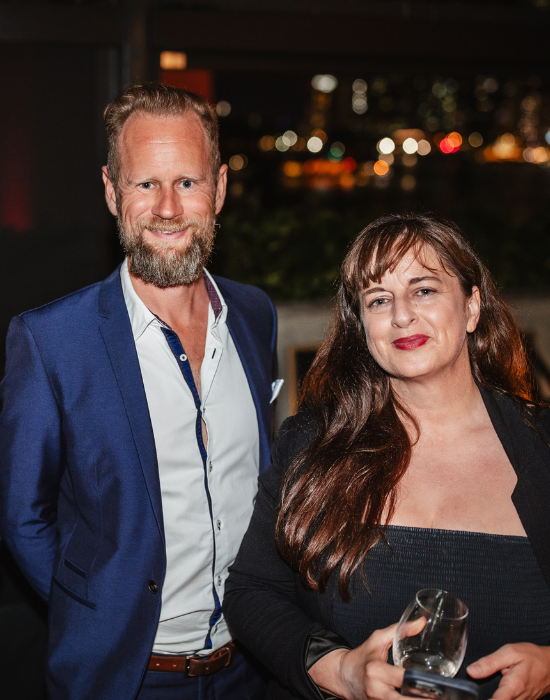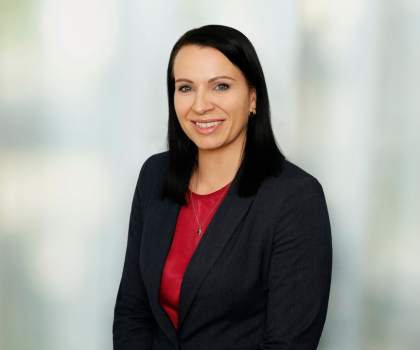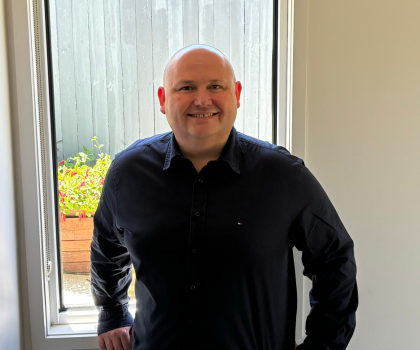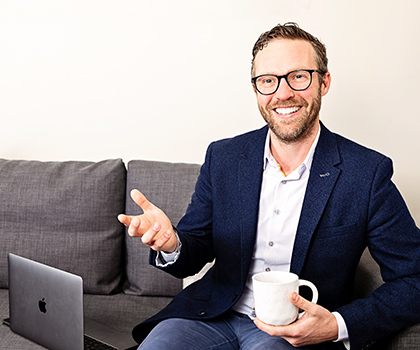
Dane Jacka completed the accelerated online MBA in early 2023. Whilst completing his MBA he founded Pause, a business that seeks to empower workplaces to improve well-being, performance and innovation. In this interview, Dane talks about why organisations should invest in their employees' mindfulness and what prompted him to get back into the classroom.
Can you tell us about Pause?! What inspired you to create Pause and what is your mission?
Pause is leading a mindful transformation at work, empowering people to reclaim their focus, calm, insight and presence and supporting organisations to deliver wellbeing, performance, impact and high engagement. We do this by combining ancient wisdom and practical science with heart to build, what I believe are, the foundations of wellbeing and leadership excellence: mindfulness!
I’ve been a meditator for close to 25 years now and I’ve found it a practice that I’ve returned to time and time again to support me with my own mental health and the everyday challenges of work and life. This love for these practises, and the benefit that can result has led me to teaching meditation and mindfulness and now offering these services to organisations.
I was inspired to create Pause as I’ve grown increasingly concerned, as I see people struggling with their own mental health, and often impacted by poor leadership behaviours and unhealthy workplace cultures. I know that organisations can do better in recognising the impact of work on employee wellbeing and intentionally developing self-aware, compassionate leaders.
I’ve also seen the current distraction crises overtake us as more and more devices, apps and media compete to hold our attention. I think that this loss of focus is making us unhappy, unproductive and less able to do the deep work required to solve the big problems of our time.
In your opinion, why should organisations invest more in their employees' mindfulness?
I think that organisations should invest in their employees' mindfulness because it is both a compassionate response and a smart business decision.
It’s compassionate because people are struggling with their wellbeing and mental health and are seeking tools to better support themselves. We all acknowledge the increasing prevalence of anxiety and depression in our modern age. Much research highlights how workplaces can significantly contribute to or detract from a person’s wellbeing. In fact, a recent survey indicated that a person’s manager has just as much impact on their mental health as their partner, and even more impact than their therapist or doctor.
I think that compassion is one of the very best things that we can offer to each other. Amongst all the different workplace wellbeing programs, I’ve seen that mindfulness is the foundation of wellbeing and should be one the first places that organisations explore.
It’s a smart business decision because 25 years of research shows that the benefits of workplace mindfulness are myriad. These workplace benefits include increased job performance, improved workplace safety, enhanced management competence, better patient outcomes in health settings, improvements in relationships and communication, and enhanced worker wellbeing. Mindfulness is a particularly vital skill for those in leadership positions, as leader mindfulness has direct performance and wellbeing benefits for the leader and studies show that leader mindfulness also enhances a followers’ job performance and wellbeing even if the follower does not practice mindfulness.
This is why world-leading organisations such as Google, Intel, Goldman Sachs, AstraZeneca and Nike invest significantly in providing ongoing mindfulness training program for employees. Whilst companies like Yahoo!, Deutsche Bank, Procter & Gamble and HBO provide dedicated meditation rooms, and Apple employees are paid to engage in 30 mins of mindfulness meditation daily on company time.
What resources (blog, app, etc.) would you recommend for busy professionals looking to lead a more mindful life?
In terms of apps, I’m a fan of Insight Timer as it is free and has a range of different guided practices and talks. People will be able to find something there that resonates for them. There is also a workplace section that offers a range of useful practices that may be used in various contexts, for example, during your commute, before meetings or to help unwind after a busy day.
In my years of teaching, I’ve found that many people can have a harsh or unkind relationship with themselves and may often treat others much more kindly than they do themselves. We are often our own worst critic and that inner-voice can be particularly nasty. For this reason, I recommend the self-compassion body of practices, particularly those pioneered by Kristen Neff and Chris Germer.
You can also find articles and blogs that provide insight into applied mindfulness via www.pausemindfulness.org.
What is one goal you'd like to achieve, professionally or personally in 2024?
2024 for me is about exploring and discovering the most effective way to bring mindfulness to mainstream organisations. Many organisations are recognising the need to support the wellbeing of their people in a systemic way, but many don’t know how to do this in a way that creates impact. So, one goal for me in 2024 is to develop the most accessible, effective and widely applied corporate mindfulness and Mindful Leadership programs across Australia.
What prompted you to get back into the classroom to complete your MBA?
I had previously been in executive roles in human service organisations and had commenced working as a consultant. I realised that there were gaps in my knowledge and skills, and I was looking for a broad and deep business education, particularly something that was modern and aligned with my values. I was also seeking new ideas and to be exposed to the latest ideas, research and academic evidence for business, management and leadership principles.
How did you fit study into your busy life? Any tips for current and future MBA students?
I only managed to fit study into a busy life with good planning and a very understanding partner! I found that I had to be quite structured as I was working full-time and had other commitments. Most nights of the week I would set aside an hour or two to read; and every Saturday was devoted to writing and developing assessment content. I also made a commitment to myself to have one full day off a week to rest and support my wellbeing.
This felt important for me as the rigors of completing an MBA could have dominated my life if I didn’t set some boundaries. It certainly required some sacrifice of my social life to complete the program, although it feels well worth the investment.
Regarding tips for students, I found that I could better absorb academic papers by printing them out. I would take them into the garden to read when I had the opportunity. I noticed that anything that I could do to learn away from the computer helped with focus, reflection and engagement with the concepts. I have since encountered research that indicates that most people recall and learn more from reading on print rather than reading on a screen. So, this could be something for students to consider that may assist.
You have had the opportunity to connect with the Griffith MBA Community in and outside of the classroom. How would you describe it?
Connecting with the Griffith MBA community has been so valuable for me. I completed the online accelerated MBA and didn’t have as much opportunity to connect with other students in person as I would have liked. I have attended a several MBA alumni events and they have always led to many fascinating and valuable conversations; many of these have helped me in my own business and have led to work opportunities.
I find these connections inspiring as I see this, and the next, generation of business leaders from all sectors with a focus on ethical business and genuine positive impact.
If you have a question, we encourage you to connect with Dane on LinkedIn.
You may also like

Meet MBA Student, Billie Lewis-Cassidy
Billie participated in the European Summer School for Advanced Management (ESSAM) as a part of her MBA studies. In this interview, Billie talks about her ESSAM experience and gives us a glimpse into her role at CPL – Choice, Passion, Life.

Meet MBA Alumnus, Damien Lefrancke
Damien is the QLD & NSW State Manager at Telstra Business. In this interview Damien shares his aspirations for the year ahead, insights into his personal and professional journey, and how he sees the telecommunication industry contributing to a more sustainable future.

Meet MBA Student, Daniel de Vries
Daniel cultivates relationships with global clients seeking aircraft modifications on a day-to-day basis. He gives us a glimpse into the aerospace industry and his hope for a sustainable future.